Bogdan State
VibrantVS: A high-resolution multi-task transformer for forest canopy height estimation
Dec 13, 2024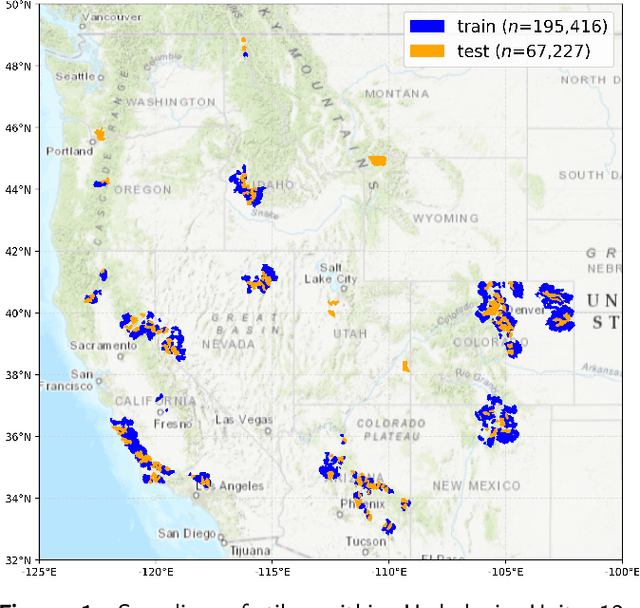
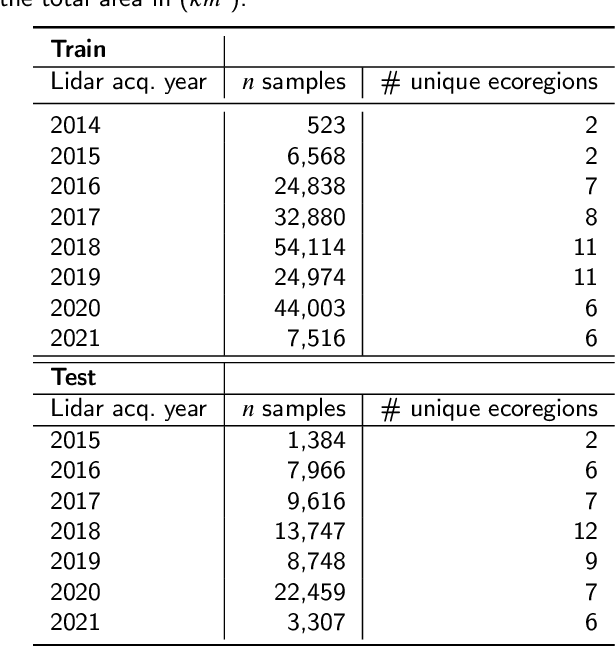
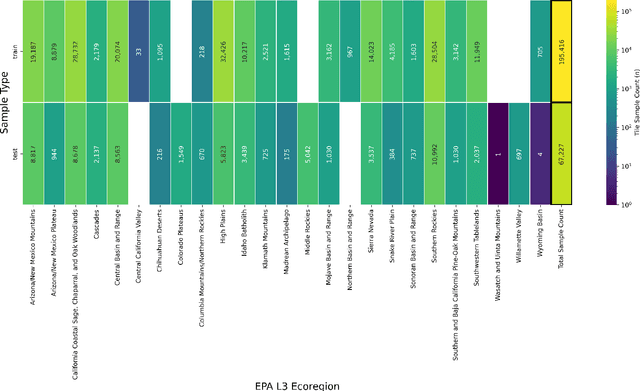

Abstract:This paper explores the application of a novel multi-task vision transformer (ViT) model for the estimation of canopy height models (CHMs) using 4-band National Agriculture Imagery Program (NAIP) imagery across the western United States. We compare the effectiveness of this model in terms of accuracy and precision aggregated across ecoregions and class heights versus three other benchmark peer-reviewed models. Key findings suggest that, while other benchmark models can provide high precision in localized areas, the VibrantVS model has substantial advantages across a broad reach of ecoregions in the western United States with higher accuracy, higher precision, the ability to generate updated inference at a cadence of three years or less, and high spatial resolution. The VibrantVS model provides significant value for ecological monitoring and land management decisions for wildfire mitigation.
Detecting and Quantifying Malicious Activity with Simulation-based Inference
Oct 07, 2021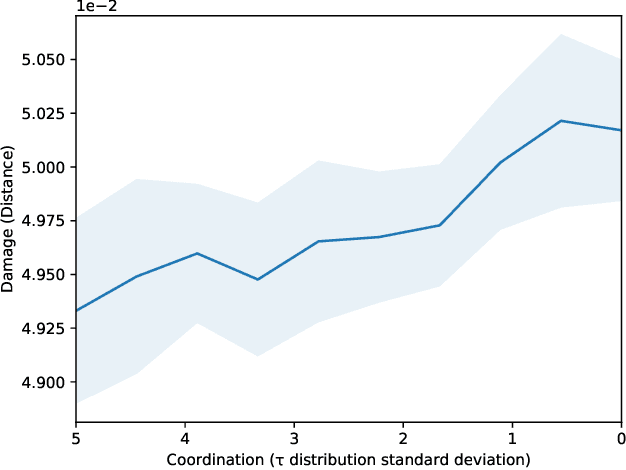
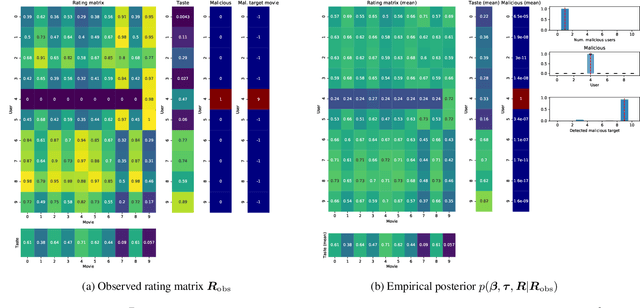
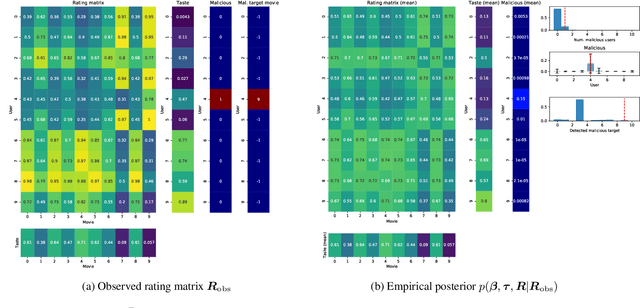
Abstract:We propose the use of probabilistic programming techniques to tackle the malicious user identification problem in a recommendation algorithm. Probabilistic programming provides numerous advantages over other techniques, including but not limited to providing a disentangled representation of how malicious users acted under a structured model, as well as allowing for the quantification of damage caused by malicious users. We show experiments in malicious user identification using a model of regular and malicious users interacting with a simple recommendation algorithm, and provide a novel simulation-based measure for quantifying the effects of a user or group of users on its dynamics.
People, Places, and Ties: Landscape of social places and their social network structures
Jan 12, 2021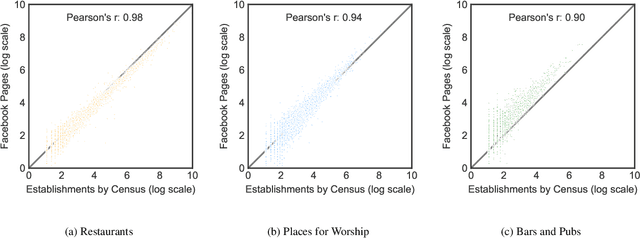
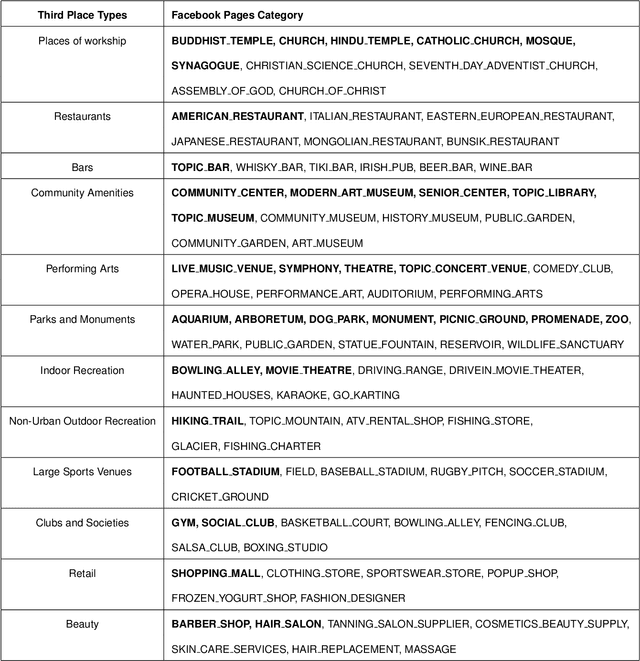
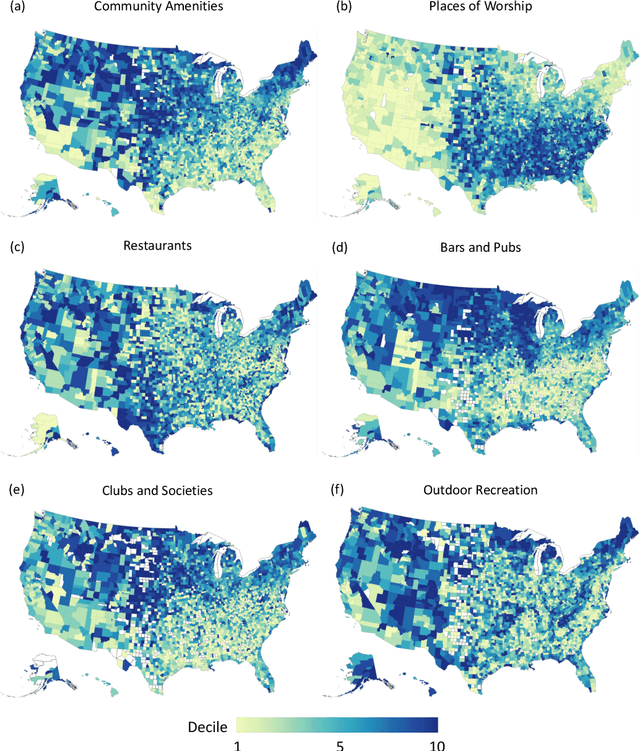
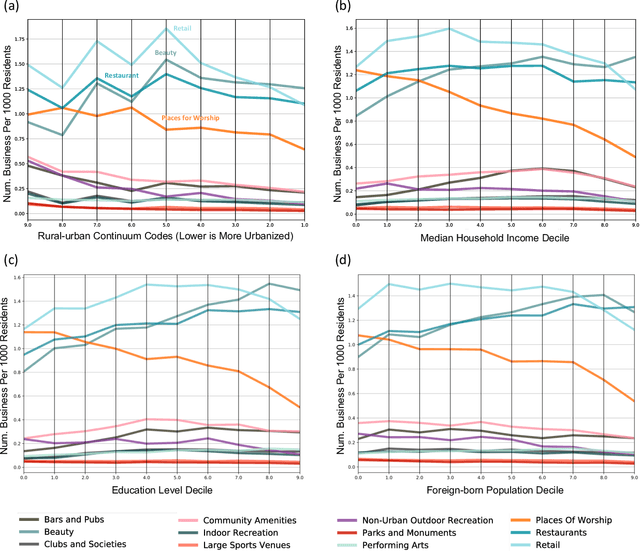
Abstract:Due to their essential role as places for socialization, "third places" - social places where people casually visit and communicate with friends and neighbors - have been studied by a wide range of fields including network science, sociology, geography, urban planning, and regional studies. However, the lack of a large-scale census on third places kept researchers from systematic investigations. Here we provide a systematic nationwide investigation of third places and their social networks, by using Facebook pages. Our analysis reveals a large degree of geographic heterogeneity in the distribution of the types of third places, which is highly correlated with baseline demographics and county characteristics. Certain types of pages like "Places of Worship" demonstrate a large degree of clustering suggesting community preference or potential complementarities to concentration. We also found that the social networks of different types of social place differ in important ways: The social networks of 'Restaurants' and 'Indoor Recreation' pages are more likely to be tight-knit communities of pre-existing friendships whereas 'Places of Worship' and 'Community Amenities' page categories are more likely to bridge new friendship ties. We believe that this study can serve as an important milestone for future studies on the systematic comparative study of social spaces and their social relationships.
 Add to Chrome
Add to Chrome Add to Firefox
Add to Firefox Add to Edge
Add to Edge